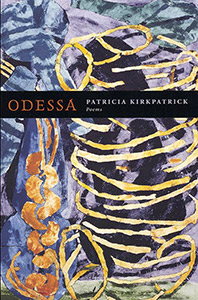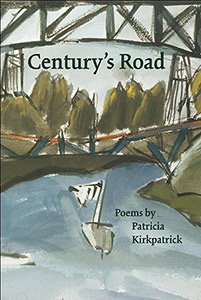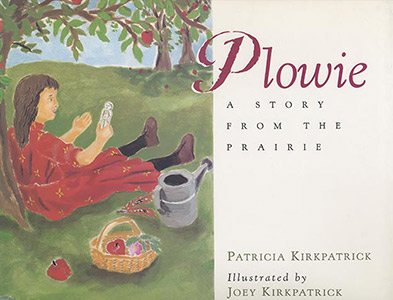|
Odessa, Milkweed Editions, 2012. “Patricia Kirkpatrick’s Odessa is an astonishing achievement. Like Tomas Tranströmer, Kirkpatrick understands what is rational but false; what is irrational but true. Supremely lyrical, brilliantly imagined—this is poetry of the highest order. In these pages, ‘Beauty and suffering/ keep making the world.’” “The nearness of grief and illness haunt the deep currents of this book to the extent that the present moment cannot be verified. The world is familiar and strange at the same time. If what once was known appears to return, it comes back changed. Thus the consciousness of this grave book must be finely calibrated—and it is. The reader is brought into the presence of a mind learning itself for the second time. Most of us only experience such wonder once. “One of the speakers in these compelling poems declares, ‘I am writing to say I have been opened and closed.’ That is the truth of this book, its small map and enormous journey. With those and other simple words we are led—powerfully—into the difficult but calm reverie of discovery no matter the condition or circumstance of the treasure. As the poems show, we make this sojourn together even as the details make news of us all.” |
|
Century’s Road, Holy Cow! Press, 2004. “The voice in these poems is too troubling to be called meditative (unless meditative means to be reconciled with trouble), yet too compassionate and deeply patient to be called troubled (unless we mean unseated by beauty or bewildered by transience and eternity). These poems own all of these characteristics. I’m sure they will find space in many hearts.” “Patricia Kirkpatrick’s poems bring a deep inquiry to her experience and a rich and expansive imagination into the world of the senses and things. They range through many aspects of human life, probing old age and midlife as well as pre-birth, raising questions of presence as well as absence. I find myself taken by their unsentimental tenderness—a mark, I believe, of all good lyric poetry.” |
|
Plowie: A Story from the Prairie, Harcourt Brace, 1994. |



